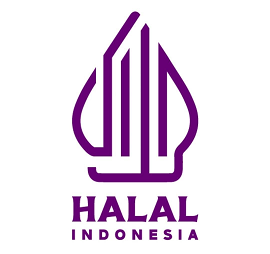I REFER to your report titled “Local SMEs not yet on Brunei Halal radar
— Their production costs are high: Ghanim” (The Brunei Times, October
3, 2009).
But
then one week earlier, the content of the above report contrasted
adversely with that very positive, confident report entitled “Brunei
Halal goods set for launch within year — First range won’t be sold
locally but sent straight to markets abroad” (The Brunei Times,
26-9-09).
This apparent flip-flop of official decisions has
obviously raised a lot of questions. They have a direct short- and
long-term bearing on our national survival, because a flourishing small
and medium enterprises (SME) sector is, in most countries of the world,
the lynch-pin of employment creation, generator of income and hence
facilitator of economic growth and development.
Rite of passage
The
content of The Brunei Times report of October 3, 2009 was full of the
common, well known truisms: that Brunei Darussalam has a small domestic
market, that raw materials are absent, that shipping is the expensive
constricting constraint, that local wages are high, etc, etc,
year-in-year-out being collectively heralded as it is a non-starter.
All
these constraints and shortcomings are given. Even in the US, the rich
and advanced country, SMEs come and go. Even their 100-year-old giant
icons GM, Ford and Chrysler have floundered. Just ponder on this topic:
“Singapore SMEs faced with a challenging business environment”
(Entrepreneurs’ Digest July/August 2008.) Entrepreneurs always
experience brutal rite of passage.
If business was plain
sailing, every entrepreneur would be a millionaire or even a
billionaire. A country would have been relatively easy to develop
economically and to prosper.
Not that the peak is crowded, but the ascent is steep and slippery. Trees may prefer calm, but the wind will not subside.
Trade barriers
It
took Mr James Dyson 5,217 prototypes, 14 years of debt, multiple
lawsuits, and rejections by his own British banks and European
companies, to create a vacuum that actually sucked, which is now the
top-selling upright vacuum cleaner in the United States, after the
Japanese were prepared to take the risk in supporting him (Readers
Digest, March 2009).
Now the contents of the reports quoted
above are being made more intriguing when we read: “Dato Paduka Hj
Hamdillah Hj Abdul Wahab (Deputy Minister of Industry and Primary
Resources) will discuss with counterparts from Pacific Rim countries on
ways to help small and medium enterprises access global markets and
overcome trade barriers.” (“Brunei attends Apec SME meet,,” Oct 8,
2009).
Then what about this report in The Brunei Times, Oct 10,
2009: “Brunei Darussalam will participate (with) the Asia-Pacific
Economic Cooperation on the establishment of a market research facility
that will help SMEs penetrate global markets the (Deputy Minister of
Industry and Primary Resources) shared some of the initiatives that
have been developed and implemented in Brunei to create an enabling
environment for SMEs to take on the export markets.”
Why then
must our local SMEs be deliberately relegated to the back-burner by
Ghanim, which is instead promoting, giving top priority to
international companies?
How about our own SMEs?
Ghanim
contends that “their (our SMEs’) production costs are high” (The Brunei
Times, Oct 3, 2009). This true. This is the in-born handicap for our
SMEs. And do not forget that every enterprise experiences teething
problems.
Medically, on the welfare considerations, nobody has
the heart and stomach to just simply abandon handicapped people to the
vagaries of the elements. Likewise, this is a challenge against
Ghanim’s decision to abandon local SMEs. Please do not yet send
coffins, give them ambulance, thank you.
High production costs
are just a transitional situation in any firm. Look at IT products. As
their demand increases their unit price inversely drops. This is due to
the beneficial effect of the economies of scale. The increased demand
stimulates an increase in production. Hence the rising productivity
reduces the cost of production per unit.
Regressive
Thus, nowadays demand stimulates its own supply. The old orthodox law was: supply creates its own demand.
This
means a 180 degree shift from supplier (supply side) to consumer (the
demand or market side). This means we must work harder to stimulate the
market side. Domestic plus international. In this specific issue: how
do we directly and indirectly help our local SMEs to grow and flourish?
Directly help them to get their foot into the door to sell lots more.
Ghanim’s very regressive decision in abandoning our local SMEs to the
back-burner is tantamount to “the short-term crisis: the mother of all
problems”. (Rules to Break and Laws to Follow by Dan Peppers and Martha
Rogers, Ph D (2008).
High production costs of our SMEs are
partly beyond their control. Just ponder on this “Cut cost of doing
business in Brunei” (The Brunei Times, April 15, 2009). This title was
the synopsis of the concern expressed by Shazali Sulaiman, a partner of
the auditing firm KPMG.
Halal standard
Therefore, it is
not only wrong to abandon our local SMEs but destructive to the
long-term creation of employment opportunities, creation of income.
Anywhere in the world, SMEs form 80-90 per cent of the jobs created —
the provider of employment and even inventions of new products and
services. Thus Ghanim’s short-termism will be the mother of all our
problems.
As per the public statement of Deputy Minister of
Industry and Primary Resources quoted above, our SMEs must be assisted
and guided to reap that increasing production and economies of scale by
capturing wider, deeper overseas markets through bearing that coveted
“Brunei Halal” certification.
Brunei’s highest, reliable halal
standard is a well known fact in the Middle East and this region. I am
told even in China, Taiwan and Hong Kong.
“When you see a
product has the Brunei Halal brand, you would not have doubts (of its
quality).” (Acting Director of Agriculture Department, Hjh Normah Suria
Hayati PJDSM DSU (Dr) Hj Mohd Jamic Al Sufri (The Brunei Times,
26-9-2009: “Brunei Halal goods set for launch within year”).
To
be sure, the process of decreasing cost per unit through increasing
production volume due to that increasing economies of scale is a must
target for all firms of all sizes in every industry. This is the very
reason why even advanced industrial giants such as USA, Japan, Germany
— and now the population giants such as China and India — are very much
dependent on their overseas markets (export markets) to derive that
Increasing economies of scale advantage to be price competitive, as
well as to build their foreign exchange reserves.
Likewise
Brunei SMEs must be strongly supported by the Government ie the
Ministry of Industry and Primary Resources to secure that cost
reduction per unit through securing export markets.
“The most powerful force on earth is that spontaneous cooperation of the people.” — Woodrow Wilson.
Ghanim
must be directly instructed to diligently support our SMEs as its top
priority. Do not make our SMEs the orphans of flawed decisions.
On
the reverse side, to derive that increasing economies of scale for our
“fixed assets”, such as Brunei Heart of Borneo, Temburong eco-tourism,
local hotels (Ref: “Too many hotels, too few tourists” The Brunei Times
October 9, 2009), transportation, plus tourists, their safety, etc,
there must be an effective, efficient and national coordinated effort
to lure tourists to Brunei Darussalam.
Mental shackle
The
assertion that based on one “who has been reasearching markets for over
20 years… (that) companies with operations in Brunei do have to deal
with higher costs in shipping their goods overseas” (The Brunei Times,
Oct 3, 2009) must not be accepted as given. Because in this rapidly
evolving and fiercely competitive world past experience can be a
“mental shackle”, or it can never be relied upon. This is because
according to Alexander Bard and Jan Soderquist: “It is now necessary to
rethink constantly and to think away old thoughts” (their book
Netocracy — The New Title and Life After Capitalism (2002)
Similarly,
“Human beings are far more skilled at following old patterns than
thinking new thoughts” (Tim Hurson in his book Think Better – 2008).
Also
according to Peter Sheahan: “I help senior executives shift mindsets
out of the world as it used to exist and into the world it exists
today… To understand that what was right for yesterday may not be
right for today and likely will be dead for tomorrow. To literally flip
on their head some of the traditional ways in which we approach our
business, policies, and even our individual lives. To turn conventional
wisdom on its own head.” (FLIP by Peter Sheahan (2007).
“Knowledge makes us play safe.” Paul Arden in his book: “Whatever You Think, Think The Opposite”
Thus
to turn conventional wisdom on its own head, to think away old thoughts
by constantly thinking new thoughts essentially require our collective
national spontaneous cooperation, and support and determination in
internationally promoting, marketing the food products of our local
SMEs. We have to spend money to save money, then money makes money.
Money creates employment and more income.
New currency
The
promotion, marketing will increase awareness of those products which
will translate into an increase in demand. An increase in demand
directly stimulates an increase in production-supply. Hence the cycle
of increased supply increases the economies of scale with its
concomitant reduced production costs per unit thereby sharpening the
competitive market price of those products.
In this new
competitive reality, attention is the new currency and
customers/markets control what they watch, read, hear and taste. If you
want to sell your products do not hide them! Don’t store them away in
the back-burner. Show them. Flaunt them. Stimulate their desire to eat.
It
is useful to note that the reduction of production costs per unit
derived from the increasing economies of scale is different from that
“notorious” cost cutting exercises such as by implementing that
contentious actions: unpaid time off, reducing business hours, layoffs
of employees, reducing trainings, reducing advertising costs, reducing
salaries and wages, and the like.
This type of cost cutting is
due to persistent market contractions. Some well-established very
successful international airlines, for example, have been implementing
these contentious cost-cuttings as a direct result of a long-term drop
in air-travelling passengers.
While the high costs of shipping,
materials and high wages are a “neutral” cost disadvantage beyond our
control, and for that matter beyond the control of those similarly
endowed poor resources, “poor” labour countries.
Enlargement
and deepening of market to achieve the vital increasing economies of
scale, to gradually capture customer share must begin at home. Keeping
our own house in order first to avoid, to remove policies-decisions
cross-purposes, those flip-flops. And also to test-market those
products. To receive market feedback.
“We are the ones who block
our own paths to tranquillity and success and we are the ones who must
clear them again” — David Baired in his A Thousand Paths to Tranquility.
Yang
Dimuliakan Pehin Orang Kaya Lela Raja Dato Seri Laila Jasa Haji Awang
Abdul Rahman bin Haji Abdul Karim DSLJ, PJK was formerly Permanent
Secretary of the Ministry of Finance and the Ministry of Defence. The
views expressed by Pehin Dato Rahman Karim are his own and do not
necessarily reflect those of The Brunei Times. The Brunei Times



